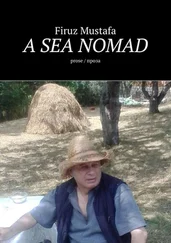One such leader was Idris bin Mubarak al-Jaboo. Idris was the leader of a family whose ancestors had challenged the al-Wyly tribe for control of the country, but now they had become wealthy by operating fishing boats and exploiting pearl divers amongst other commercial, sometimes dubious, activities. He was, in appearance, with close-spaced sunken black eyes and thin hooked nose, the epitome of shifty-ness, thought Farnham. He attributed Idris’ appearance to generations of inbreeding amongst first cousins.
Salim was impressed with Farnham’s knowledge of the Arab culture and language and was curious to know his background; at the risk of being thought impertinent, he questioned him. Farnham explained, as they ate, that he had spent many years as a secretary at the British diplomatic mission in Mesopotamia and was later in Eritrea where he had met and married an Egyptian teacher of English.
Chapter 9
Seeing the gate, where her father had been standing, reminded Nahla of her oldest brother. Moosa’s tendency toward sadistic cruelty had been present since her first memory of him. Ali had told her that he believed it started when he was a baby.
“Moosa was suckled by Layla as she sat with his aunts and your stepsisters, Asia and Fathia, behind the screen overlooking the courtyard. It was the highlight of their otherwise mundane week, to sit each Friday, after noon prayers, to watch the wretched criminals who had been condemned, to death by beheading or to receive lashes, by your grandfather’s court. I suspect that Layla had felt vulnerable then because she had finally delivered a son who would ensure the line of the al-Wyly dynasty. She would have worried constantly how long it would be before your father chose another, younger wife,” he said.
After the men had gone inside, Nahla and Ali waited to see what would happen next and resumed talking about Moosa. Ali said, “Sometimes the sisters would be moved to gasp when, with a single blow, the head of a murderer was separated from his trembling body by the executioner. They were easily aroused by the sight of the big Negro, stripped to his waist, who with rippling muscles wielded the broad sword or the lash and placed them with such precision; sword on the neck and lash on the back and legs of his victims. Your older sisters, just in their teens and ripe for marriage, would count the strokes, anticipating when the Negro would change his target area. They knew that many of the victims would be unconscious before their punishment ended and it could take days to receive all their strokes while conscious.” After explaining the word ‘conscious’ to Nahla, Ali continued, “I assumed that as he received her milk, baby Moosa drank also the excitement of his mother. After he was weaned, Moosa still joined the ladies on Fridays, in his place at their feet, where he sat silently, enjoying the spectacle and subconsciously absorbing the crude insensitive comments and reactions of the women to the suffering of the victims.”
***
That evening Salim was so elated with the apparent success of the meeting that he sent for Fatima, with whom he anticipated having one more attempt at the consummation of their union.
***
Back on-board Pegasus, as the two officers recovered from the under-cooked entrails of lamb, Farnham explained the origins of the country they were visiting. “The fort where they were entertained is about a mile from the town that gave the country its name, and this is where over several generations many tribal groups settled after abandoning the nomadic life. Some have become quite prosperous by dealing in commodities; fabrics, spices, slaves, and particularly pearls. The town Arabs were formidable traders with an inherent sense for spotting bargains and deriving the maximum profit. A successful man would be able to afford to support many wives, keeping them in equal style.”
The next day the anchor was weighed, and the warship departed for Britain via the Gulf of Oman, the Red Sea, and the Suez Canal.
***
The two Indian clerks, who assisted Salim to administrate the hitherto poor country, were unable to cope with the burden that the discovery of oil now presented. The increasing numbers of foreigners were an embarrassment because there were no facilities in Naamlah, even to accommodate those who were to visit Salim. It was soon obvious to the Indians that Salim needed more help, and it was they who had suggested that he seek this from the British protectors of Naamlah’s sovereignty. It was thus that a request was made to the British Government that resulted in James Farnham’s return as the resident adviser.
Farnham had been looking forward to a long leave with his wife and children, but no sooner than he set foot in England was he called to the Colonial Office and told that he and his wife were to return to Naamlah. The Minister said, “It appears that you made such a good impression on the Emir that he has requested the Prime Minister to make you his adviser.” Farnham was not disappointed by the appointment because he was confident of being able to help Salim, with whom he had established a good working relationship, but he was not exactly convinced he had the necessary experience for such responsibility. Nevertheless, he responded, “I am delighted to oblige, Minister, providing arrangements can be made for my children’s education.”
“Do not worry on that score, they will be enrolled at a good school at the expense of the Government,” the Minister assured him. “Arrangements have been made for the departure, on the Cunard ship, of you and your wife one week from today, so please put your affairs in order before then.”
“Yes indeed, Minister,” replied Farnham.
“That is all, you may return to your family.” As Farnham made to go, the Minister added, “I am sorry, Farnham, that your leave has been cut short.” Farnham did not comment as he could only have endorsed the Minister’s statement, shook hands, and turned to depart. “Oh, I forgot to say that you will be promoted, and all of your living expenses will be met by the Naamlahn government, that is, after you have assisted in forming one,” said the Minister, smiling.
***
A year had passed since the visit of the white men and Nahla and Ali were back on the beach, talking once more about Moosa and wondering what he was up to in Germany.
“Did you know your Uncle Hammed bought Moosa his whip when he was three, after he had been told how the boy had boasted that when he was a man, he would replace the Negro? With this new toy, Moosa would stand with feet apart, legs slightly bent, chest at right angles to the chair-back that received his blows,” said Ali, clearly disgusted at the memory.
Nahla said, “I remember that when he was a boy, Moosa was always carrying his whip. He tried to use it on our brother, but Saif was too quick for him and easily avoided his fat brother.”
“Yes, and he would have used it on you if your wet nurse had not protected you,” he replied.
“But he was sometimes successful in finding a victim among our unsuspecting cousins, though more often he vented his aggression on defenceless animals,” Nahla recalled.
Ali replied, “I remember after your grandfather had died, your father was still in Europe and the young uncles, Abdulaziz and Hammed, were in charge and providing more entertainment than that supplied by the court of your grandfather. In many of those cases, the victims had done no more than offend them by refusing an unreasonable demand.” After explaining ‘unreasonable,’ Ali continued; “Moosa learned later that when he became a man his vocation would not be that of an executioner; he would be groomed to become Emir, a frightening thought for all who knew him. I think he looked forward to the power but not the responsibility. You know he started using the whip on me after I joined the harem.”
Читать дальше












